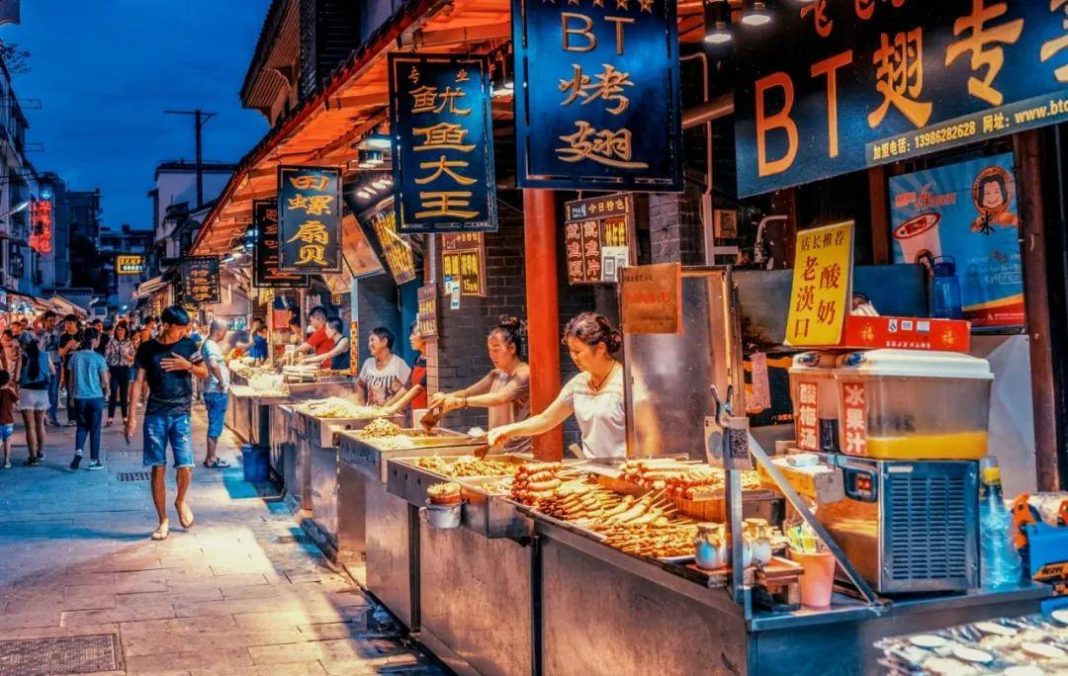For those who have children at home, they basically arrange a trip for one or two weeks during the summer vacation. We also recently went out and will stay in Weihai for a few weeks. After the sun sets, we come to the seaside to enjoy the sea breeze and dig some sand. We don’t even need to turn on the air conditioner to sleep at night, much more comfortable than Beijing.
This article is not a travel guide. Let’s talk about the food during the trip. If you find it difficult to eat nutritious food during the trip and at the same time find it difficult not to gain weight, then you must read this article. I will share some easy tips to achieve it. In the end, I will also explain some details about food safety. Safety is crucial, and we all need to remember that.
1. How to deal with an unbalanced diet?
1. Not eating coarse grains as the main staple food
In restaurants, it’s either white rice or white noodles. Snack streets are a carnival of refined carbohydrates, with various types of noodles, pastries, flatbreads, and cakes available in every city. Don’t feel burdened by refined carbohydrates. The Chinese dietary guidelines don’t require us to eat coarse grains every meal. Whole grains, legumes, and tubers should constitute about 1/3 to 1/2 of the staple foods.
Most hotels offer steamed corn, sweet potatoes, and yams for breakfast. You can have them as your main staple food in the morning, making it easy to balance the thickness of staple foods throughout the day.
It’s best to bring a few packets of individually packaged oat bran or oats. Just add hot milk or water to eat. You can also bring instant chickpeas or sweet corn kernels. If you don’t have breakfast, you can snack on them when hungry during the journey.
2. Not eating enough vegetables
If you dine with family and friends and the main meal is at a place with stir-fried vegetables, take the initiative to order several vegetables. This way, you can have enough vegetables for each meal.
3. Too much or too little protein
Considering that restaurants often serve meat-heavy dishes, aim for a 2:1 ratio of vegetarian dishes to meat dishes when ordering. This way, you control the amount of meat from the start. Eating too much meat can lead to weight gain and burden the liver and kidneys.
4. Food with overly strong flavors
When ordering food, make sure to ask for less oil and salt. Specifically, request that dishes like stir-fried vegetables don’t need extra oil. If the food is still too oily and salty, you can drain some of the oil before eating or have a bowl of hot water to rinse the food.
5. Safety reminders for food
During the summer, microorganisms thrive easily. Avoid eating pre-cut fruits, cold dishes, or raw fish. Also, be cautious of street stalls selling exposed cold dishes like jelly noodles, gelatinous items sprayed with mist, which might not preserve freshness well. Always be vigilant about food safety.
Prevention
For the main meal, drink 300 ml of water 30 minutes before the meal or order a light soup when dining out. Choose more vegetarian dishes, and ask servers to serve soup and various vegetables first before the main courses. Enjoy your meal mindfully to prevent overeating. During the journey, avoid carrying high-sugar and high-oil snacks. Instead, pack fruits with low energy content for a healthy snack.
Control during the process
When you feel full, put down your chopsticks and engage in other activities to avoid overeating. If there’s excess food, pack it for later consumption. Many hotels provide refrigerators for storing leftovers.
Remedies
If you overeat, go for a slightly lighter meal the next time. Remember not to overindulge consistently. Establish good eating habits that align with your dietary goals to maintain a healthy balance during trips and daily life.
To conclude
Some may think of trips as a time to indulge without restraint. However, incorporating good eating habits into your daily routine can help you strike a balance without feeling burdened. Remember, gaining weight is easy, but losing it can be challenging. Let’s stay motivated!


